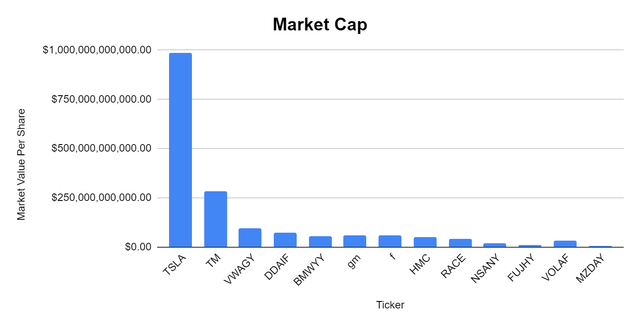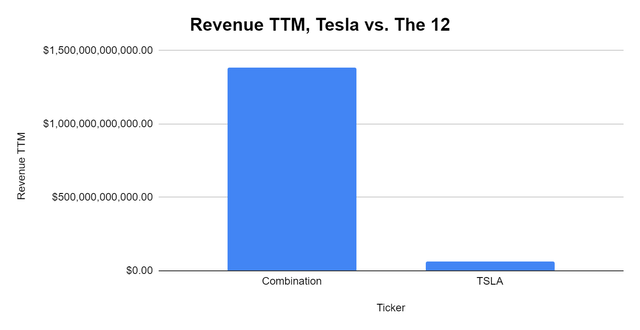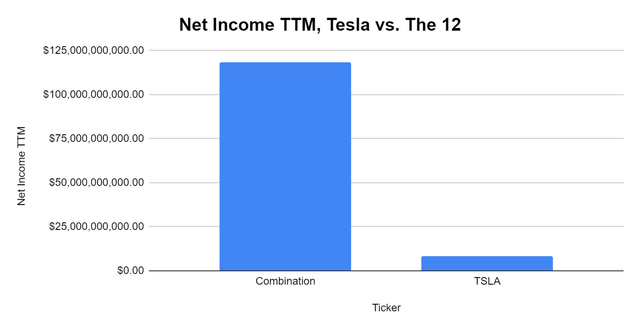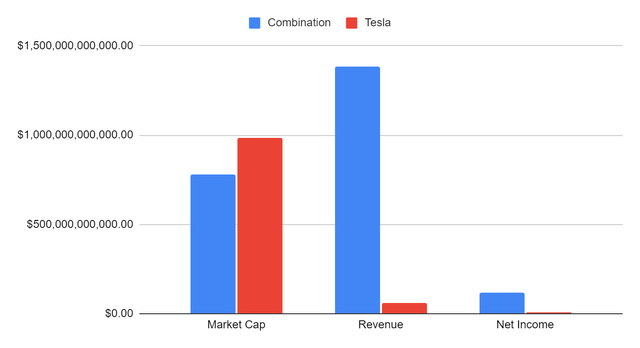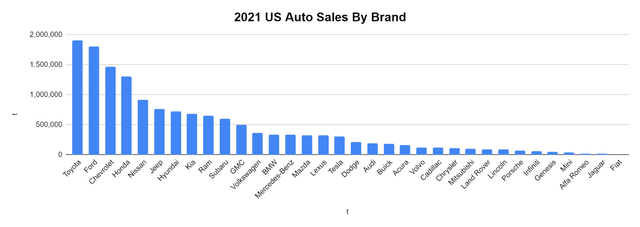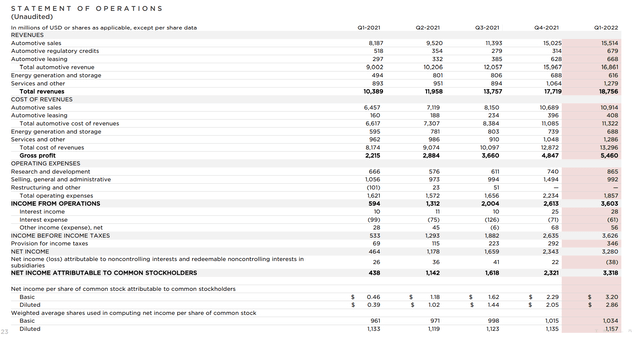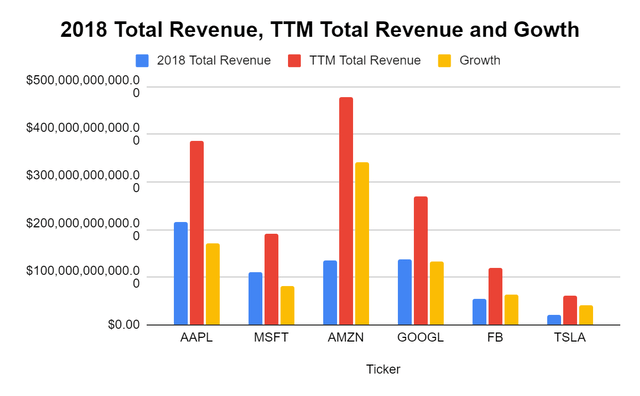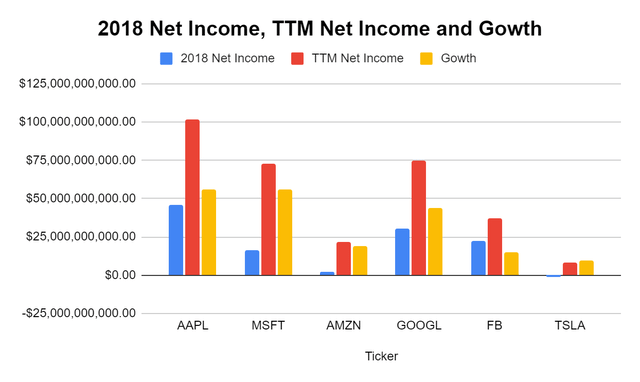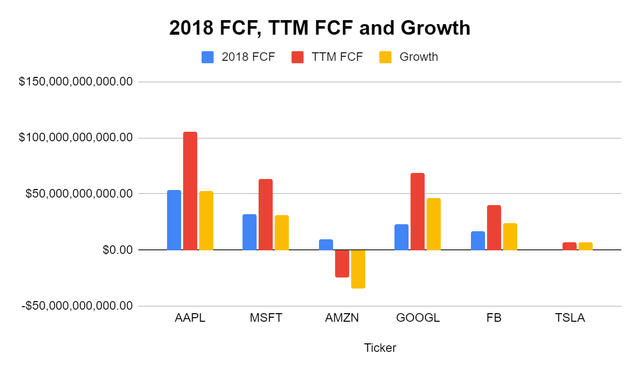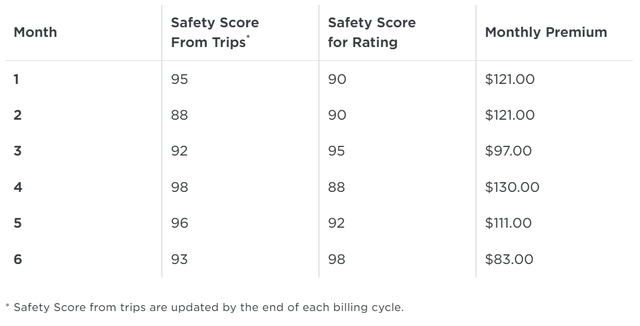Elon Musk's purchase of Twitter may soon go through
- Thread starter Specter Von Baren
- Start date

Elon Musk's Twitter is now worth a third of its $44 billion price tag, Fidelity says
Fidelity, which owns an equity stake in Twitter, previously slashed its valuation by more than 55% at the end of last year — about one month after Musk acquired the platform.
More. More! More! Mooooorrrrreeeee!!!!!This does put a smile on my face.
Elon Musk's Twitter is now worth a third of its $44 billion price tag, Fidelity says
Fidelity, which owns an equity stake in Twitter, previously slashed its valuation by more than 55% at the end of last year — about one month after Musk acquired the platform.www.cbsnews.com
But he's so smart, guyyyyzzzeeeee, he's gonna get us to Mars and then I'll get to have sex with green-skinned alien babes like Captain Kirk!This does put a smile on my face.
Elon Musk's Twitter is now worth a third of its $44 billion price tag, Fidelity says
Fidelity, which owns an equity stake in Twitter, previously slashed its valuation by more than 55% at the end of last year — about one month after Musk acquired the platform.www.cbsnews.com
I would say that this was always Twitter's value... but thar would be lying. If there is a dollar amount with the B in it, it's too muchThis does put a smile on my face.
Elon Musk's Twitter is now worth a third of its $44 billion price tag, Fidelity says
Fidelity, which owns an equity stake in Twitter, previously slashed its valuation by more than 55% at the end of last year — about one month after Musk acquired the platform.www.cbsnews.com
It still baffles me how many of the "both sides" bros still buy into Musk's bullshit nerdy personality.But he's so smart, guyyyyzzzeeeee, he's gonna get us to Mars and then I'll get to have sex with green-skinned alien babes like Captain Kirk!
It's lost more money than Tumblr in a...well, I was gonna say "a real dollar sense", but they're both based on stock priceThis does put a smile on my face.
Elon Musk's Twitter is now worth a third of its $44 billion price tag, Fidelity says
Fidelity, which owns an equity stake in Twitter, previously slashed its valuation by more than 55% at the end of last year — about one month after Musk acquired the platform.www.cbsnews.com
Still, he's doing a *really* good job of tanking it harder. Both his Trust and Safety and Brand Safety people have quit
I wonder how he's ever planning on paying that yearly interest of 1 billion... Dictator bribes?This does put a smile on my face.
Elon Musk's Twitter is now worth a third of its $44 billion price tag, Fidelity says
Fidelity, which owns an equity stake in Twitter, previously slashed its valuation by more than 55% at the end of last year — about one month after Musk acquired the platform.www.cbsnews.com
Well remember the day after Desantis used Twitter for his campaign announcement, Desantis signed an gubernatorial order making SpaceX immune from all lability from their ICBMs crashing into people's homes or raining molten asphalt on to neighborhoods.I wonder how he's ever planning on paying that yearly interest of 1 billion... Dictator bribes?
Because most of those jackasses are insecure and don't have any value or actual self worth. They're just living through somebody else to make themselves feel better or to feed their egos.It still baffles me how many of the "both sides" bros still buy into Musk's bullshit nerdy personality.
To be fair, he could pay off the entire debt tomorrow (well, after unloading more Tesla shares) and still have over $100 billion.I wonder how he's ever planning on paying that yearly interest of 1 billion... Dictator bribes?
Tesla been making significant profits from their selling of carbon credits to other corporations who don't like putting the work in to meet government regulations. More than the profit from car sales at times.
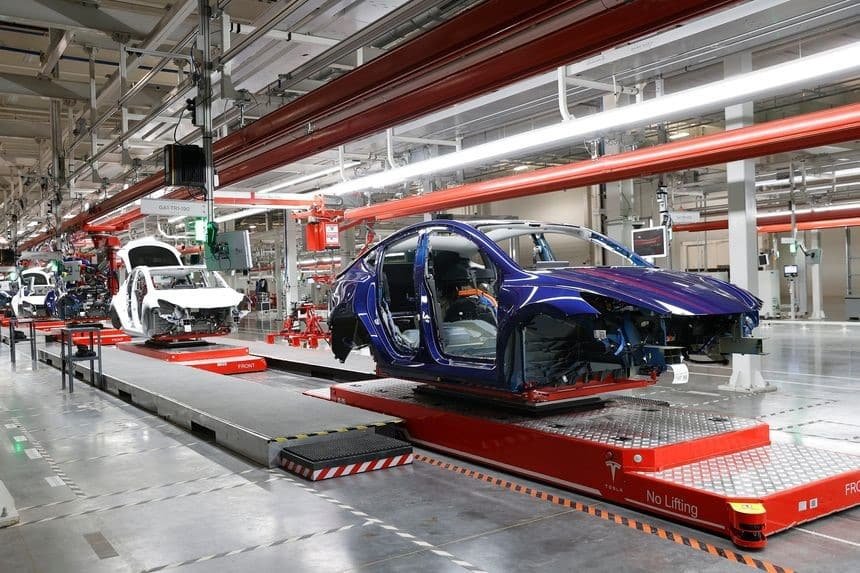
 carboncredits.com
.
carboncredits.com
.

 www.green.earth
www.green.earth
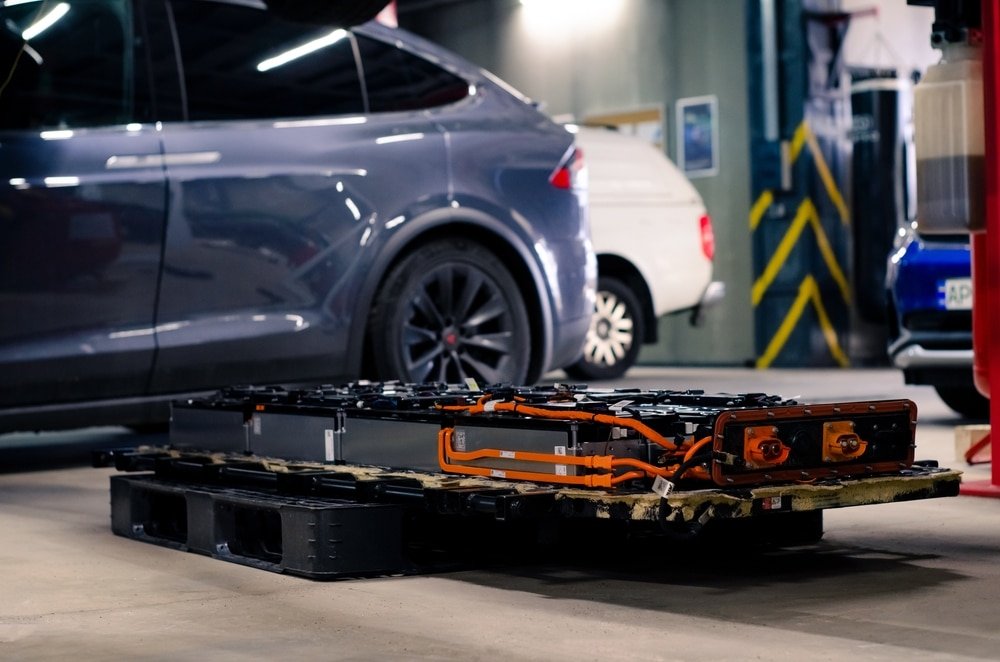
 carboncredits.com
carboncredits.com
No point beating around the bush. This. Is. A. Scam. Selling. Scams. Helping so many struggling corporations avoid already weakened regulations, directly connected to climate change.

Tesla Carbon Credit Sales Reach Record $1.78 Billion in 2022
Tesla’s carbon credit sales are making headlines again as it reached a new record in 2022. The company reported that Q4 carbon credit sales jumped 47% year ov

Tesla’s carbon credit sales soared to $1.78 billion in 2022
Tesla set a new record in carbon credit sales in 2022, generating $1.78 billion in revenue from the sale of credits to other automakers. Find out how the company has positioned itself as a leader in the electric vehicle market and the carbon credit market through its clean energy operations.
 www.green.earth
www.green.earth

Tesla Carbon Credits Revenue Up by 12%
Tesla, once again, is grabbing attention with its 2023 Q1 revenue from the sales of carbon credits alone, plus income from selling EVs.
No point beating around the bush. This. Is. A. Scam. Selling. Scams. Helping so many struggling corporations avoid already weakened regulations, directly connected to climate change.
Mmm.Tesla been making significant profits from their selling of carbon credits to other corporations who don't like putting the work in to meet government regulations. More than the profit from car sales at times.
It still beggars belief that the most valuable car producer in the world by market capitalisation isn't in the top 20 car manufacturers by volume of vehicles manufactured, or top 10 by revenue - even taking into account Tesla's non-automotive business activities.
Tesla has a market capitalisation of $680 billion. By contrast, Volkswagen is worth about $250-300 billion, but has about five times as many sales and around three to four times greater revenues. Even factoring in future growth, I believe Tesla stock is wildly overpriced and should probably be about a quarter of current at best.
It's kinda weird that "facts don't care about feelings" but we live in a feelings based economy.Mmm.
It still beggars belief that the most valuable car producer in the world by market capitalisation isn't in the top 20 car manufacturers by volume of vehicles manufactured, or top 10 by revenue - even taking into account Tesla's non-automotive business activities.
Tesla has a market capitalisation of $680 billion. By contrast, Volkswagen is worth about $250-300 billion, but has about five times as many sales and around three to four times greater revenues. Even factoring in future growth, I believe Tesla stock is wildly overpriced and should probably be about a quarter of current at best.
This actually hits on a current controversial conservative acronym boogeyman, ESG, environmental social governance. The idea is that corporate governance should be considering environmental and social impacts as well as profitability. Which is more than fine, but it's not businesses themselves that are embracing such a framework, but financial institutions, particularly things like pension funds where a lot of investment is centrally controlled. Republicans don't like this on two fronts: the first is that prioritizing things other than financial security with people's pensions is significantly more problematic than doing it with your wealth, the second is that ESG policies let Democrats pseudo-enforce their social agenda from the top down while side-stepping the government entirely.Mmm.
It still beggars belief that the most valuable car producer in the world by market capitalisation isn't in the top 20 car manufacturers by volume of vehicles manufactured, or top 10 by revenue - even taking into account Tesla's non-automotive business activities.
Tesla has a market capitalisation of $680 billion. By contrast, Volkswagen is worth about $250-300 billion, but has about five times as many sales and around three to four times greater revenues. Even factoring in future growth, I believe Tesla stock is wildly overpriced and should probably be about a quarter of current at best.
This is a real causal factor in a lot of the "woke" corporate BS, the rainbow logos and Dylan Mulvaney promotions etc, if a major corporation isn't embracing a certain amount of social activism, their market capitalization drops by not meeting ESG requirements. Which again is fine in the abstract, more than fine, its great to have people put their money where their mouth is, but when done with other people's money to bureaucratic standards, it gets stupid. Tesla's stock will probably drop with Elon's nonsense, but it's not surprising that the premier electric vehicle company has an overbloated market cap in the era of ESG.
Yes, the Republicans are against the government doing anything to improve the environment, and also against anyone else doing anything to improve the environment either. This tells us literally nothing useful except that Republicans don't care about the environment. Mostly, this is really just a random rationalisation to complain about something that as you acknowledge happens all the time because it's about a policy Republicans don't like.This actually hits on a current controversial conservative acronym boogeyman, ESG, environmental social governance. The idea is that corporate governance should be considering environmental and social impacts as well as profitability. Which is more than fine, but it's not businesses themselves that are embracing such a framework, but financial institutions, particularly things like pension funds where a lot of investment is centrally controlled.
I don't think it explains Tesla, either. Tesla has two major things going for it: rapid growth, and a very well publicised CEO with a perceived messianic genius (at least until Twitter), tech background. This stimulates investor confidence, turning into classic bubble territory where everyone jumps on the bandwagon - at least up until the point they start jumping off.
It's something to do with the valuation built on misconception of the company as a tech, not a car manufacturer, if I remember correctly.Mmm.
It still beggars belief that the most valuable car producer in the world by market capitalisation isn't in the top 20 car manufacturers by volume of vehicles manufactured, or top 10 by revenue - even taking into account Tesla's non-automotive business activities.
Tesla has a market capitalisation of $680 billion. By contrast, Volkswagen is worth about $250-300 billion, but has about five times as many sales and around three to four times greater revenues. Even factoring in future growth, I believe Tesla stock is wildly overpriced and should probably be about a quarter of current at best.
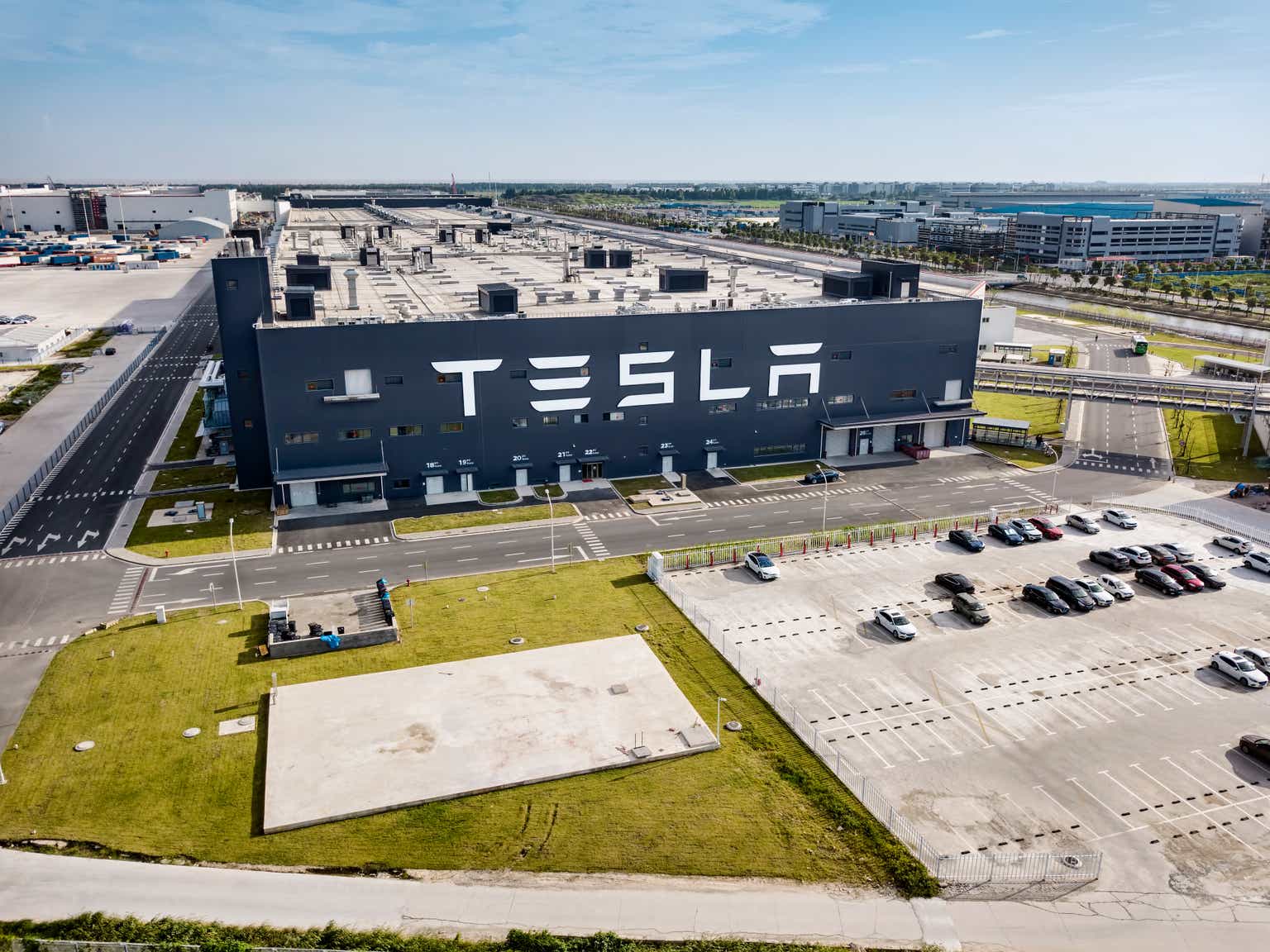
Tesla: Overvalued By 85.26% And Not A Technology Company (NASDAQ:TSLA)
I compared Tesla's metrics to the auto industry and big tech and the results are the same, Tesla's valuation is egregious. Click here to read in detail.
That's from a pro-business pro-Elon viewpoint, if being clear with lower chance of it being biased slander makes a difference to anyone. Probably not a gd idea to copypaste article while so unsober right now tho.
Had to cut last graph image from article to allow post. Eyes started glazing over with some of the later numbers and letters tbh, sleep and caffeine are needed first.Summary
- Make no mistake, Tesla is a phenomenal company that has accomplished the unthinkable as it broke through extreme barriers of entry to disrupt the auto industry.
- Just because Tesla is a successful company that is causing automotive titans to change from combustible engines to EVs doesn't mean Tesla's stock is a good investment today.
- 100% of gross profit and net income is generated from the automotive sector as Tesla's other businesses lose money, making them an automobile manufacturing company, not a technology company.
- I compared Tesla's metrics to the auto industry and big tech and the results are the same, Tesla's valuation is egregious.
It's rare to find companies that have cult-like followings with loyalists willing to pay any price for its stock. The debate regarding Tesla, Inc.'s (NASDAQ:TSLA) valuation continues to be a topic of conversation between the bulls and the bears. One side argues that TSLA's financial growth and future prospects, including FSD, insurance, and robotaxis, justify the current $902.12 billion valuations, while others argue that the current financials and cult-like following have led to a massive overvaluation in TSLA's stock.
I tip my hat to Elon Musk, as his accomplishments are second to none. When others called him crazy, Mr. Musk chose one of the hardest industries to compete in, started TSLA from the ground up, went to battle against the auto manufacturers, and succeeded. TSLA is one of the rare success stories that has truly shaped an industry, and the barriers of entry that were overcome are astonishing. TSLA didn't have the capital, manufacturing, credibility, or the infrastructure that its competitors did, yet they found a way to succeed. If the odds weren't enough which TSLA faced, they accomplished their goals without a combustible engine and pioneered an entirely new sector within the automotive industry.
Just because TSLA is a great company, it doesn't mean TSLA has a great stock, or it isn't overvalued. I am not bearish on TSLA the company because I believe they still have a long runway of growth ahead of them, but I am bearish on the valuation. Prior to leaving a comment on why I am wrong, please read the article and think about the metrics I am citing; then, I will happily discuss any viewpoints about the analysis.
Tesla Vs. The World In The Automotive Sector
It feels like TSLA vs. the world whenever TSLA is discussed. Discussing who makes a better automobile is a matter of opinion, and everyone is correct because it's their opinion. If person A thinks TSLA makes the best car and person B thinks Mercedes Benz makes the best car, they are both correct. Debating over this is pointless, so let's look at the raw numbers.
TSLA has a larger market cap than the combination of Toyota (TM), Volkswagen (OTCPK:VWAGY), Daimler (DDAIF), BMW (OTCPK:BMWYY), General Motors (GM), Ford (F), Honda (HMC), Ferrari (RACE), Nissan (OTCPK:NSANY), Subaru (OTCPK:FUJHY), Volvo (OTCPK:VOLAF), and Mazda (OTCPK:MZDAY). TSLA's market cap is currently $986.92 billion, while the combination of these 12 companies is $777.41 billion.
Steven Fiorillo
The P/S ratio is often cited to justify the valuation. The combination of TM, VWAGY, DDAIF, BMWYY, GM, F, HMC, RACE, NSANY, FUJHY, VOLAF, and MZDAY has generated $1.38 trillion in revenue over the TTM, putting their P/S at 0.56, while TSLA has generated $62.19 billion in revenue and has a 15.87 P/S.
Steven Fiorillo, Seeking Alpha
As a combined entity, these 12 companies have generated $118.29 billion in net income, while TSLA has produced $8.4 billion.
Steven Fiorillo, Seeking Alpha
TSLA is a great company, but its current valuation has become overly inflated. TSLA's market cap is $209.52 billion larger than these 12 auto manufacturers, yet the combination of the 12 auto manufacturers generates $1.32 trillion more in revenue and $109.89 billion more in net income.
Steven Fiorillo, Seeking Alpha
Looking at the market caps, one would assume that TSLA has a dominant majority over its competitors in auto sales within the U.S. According to the 2021 data, TSLA sold 2.02% of all vehicles in the U.S. TSLA's market cap reflects a level of dominance that is non-existent.
Realistically, TSLA will have a hard time disrupting the sector further due to the price point of their vehicles. The reality is that, unless TSLA can sell a car that rivals a Honda or Toyota, doubling its market share is going to be a daunting task. It's just math. TSLA doesn't have a product for the masses, and while it may continue to grow in the luxury segment, the amount of growth that can be achieved is limited due to the pricing power of the consumer.
www.goodcarbadcar.net
Tesla Isn't A Technology Company And Shouldn't Be Valued As One
The valuation rebuttal has always been that TSLA isn't an automobile company, rather, it's a technology company.
Tesla
Page 23 of TSLA's Q1 2022 slide deck from their earnings call is their statement of operations. Once again, 100% of TSLA's gross profit and net income are derived from automobiles. Energy generation and storage lose money as it generates $616 million in revenue while the cost of this revenue is $688 million. The same goes for Services and others, as this segment generates $1.279 billion in revenue while the cost of this revenue is $1.286 billion. This doesn't even factor in operating expenses.
TSLA manufacturers state of the art automobiles, but this doesn't classify them as a technology company, nor should they be classified as one. Since this is always the rebuttal and technology companies trade at larger earnings multiples, I will compare TSLA to Apple (AAPL), Microsoft (MSFT), Amazon (AMZN), Alphabet (GOOG) (GOOGL), and Meta Platforms (FB) and illustrate why TSLA is still drastically overvalued if the market was still to provide it with a tech multiple.
Prior to the comparisons, I want to frame the analysis by providing each company's market cap:
I am going to start with growth because this is always the key metric bulls point out. Since the close of 2018, which is 3.25 fiscal years, TSLA has grown its revenue from $21.46 billion to $62.19 billion.
- AAPL $2.69 Trillion
- MSFT $2.17 Trillion
- GOOGL $1.62 Trillion
- AMZN $1.28 Trillion
- TSLA $986.92 Billion
- FB $604.62 Billion
This is absolutely remarkable, but it doesn't place TSLA in the upper epsilon of technology companies. Over the same period, FB grew its revenue by $63.83 billion, which is more than what TSLA produced in the TTM. FB grew its revenue by more than what TSLA produces and generates just about double the revenue ($119.67 billion), yet TSLA has a larger market cap. For everyone who has used growth as their investment premise, FB having a market cap that's $382.30 less than TSLA nullifies that aspect of the bull thesis. AMZN's market cap is only $294.33 billion larger than TSLA, yet they generated $477.75 billion in revenue and grew their revenue by $341.76 billion in this period. Using revenue growth for TSLA doesn't support the valuation.
Steven Fiorillo, Seeking Alpha
Next, I will turn to profits because, at the end of the day, businesses are in the business of making money. Once again, TSLA has done a fantastic job of monetizing its business and, in 3.25 short years, has gone from losing -$976 million to make $8.4 billion in the TTM for an increase of $9.38 billion. FB has produced $37.34 billion in profit in the TTM, and its net income grew by $15.23 billion over this period. Using growth doesn't support the valuation when FB has a market cap that's $382.30 less than TSLA and grew its profits in this period by almost double what TSLA has generated in the TTM.
Steven Fiorillo, Seeking Alpha
The new metric bulls are using in their thesis is TSLA's free cash flow (FCF). Once again, TSLA has done an excellent job, going from -$221 million of FCF in 2018 to $6.93 billion of FCF in the TTM. Many companies would love to grow their annual FCF by $7.15 billion over a 3.25-year period, and this should be applauded.
Let's look at FB once again, since TSLA's valuation isn't based on its core segment as an automobile manufacturer. FB has grown its FCF over the previous 3.25 years by $23.45 billion, more than 3x TSLA's growth, and has generated $39.81 billion of FCF in the TTM. FB generated roughly 5.75x more FCF than TSLA and grew its FCF by more than 3x what TSLA produces, yet FB has a market cap that's almost $400 billion less than TSLA. Growth within the financials does not support TSLA's valuation, which is a breath away from $1 trillion.
Steven Fiorillo, Seeking Alpha
Today you're paying a 113.81 P/E for TSLA. Paying a larger multiple for a company that's growing its earnings quickly is normal, but TSLA isn't growing by larger amounts than FB, and FB trades at a 16.66 P/E. I have seen TSLA bulls justify the P/E because of TSLA's growth factor, but this doesn't hold up when FB has grown by larger amounts from larger starting positions and has a P/E that's a fraction of TSLA. Look at AAPL, which is the largest company in the world. AAPL has grown its net income by $56.25 billion and its FCF by $52.3 billion over the past 3.25 years, and its P/E is 26.78. People are blindly paying any multiple the market places on TSLA.
Price to Earnings Ticker Market Value Per Share Earnings Per Share P/E Ratio AAPL $166.02 $6.20 26.78 MSFT $289.98 $9.58 30.27 AMZN $2,518.57 $41.36 60.89 GOOGL $2,445.22 $112.19 21.80 FB $223.41 $13.41 16.66 TSLA $952.62 8.37 113.81
TSLA is trading at a 15.38 P/S. The justification for this multiple is difficult to defend while AMZN trades at a P/S of 11.31. AMZN's revenue grew by $341.76 billion over the past 3.25 years while TSLA grew their revenue by $40.73 billion. Instead of an absolute basis, looking at this from a percentage aspect, TSLA grew its revenue by 189.78%, while AMZN's grew by 251.32%. The P/S ratio is not a supporting valuation metric as TSLA is trading at a larger multiple than AMZN yet produced $301.03 billion less in revenue growth compared to AMZN. At the very least, TSLA should trade at a lower P/S multiple than AMZN considering their revenue growth was a fraction of AMZN's.
Price to Sales Ticker Market Value Per Share Revenue Per Share P/S Ratio AAPL $166.02 $23.47 7.07 MSFT $289.98 $25.64 11.31 AMZN $2,518.57 $941.84 2.67 GOOGL $2,445.22 $406.89 6.01 FB $223.41 $42.98 5.20 TSLA $952.62 $61.93 15.38
TSLA has done an excellent job monetizing its revenue, delivering exceptional margins, and generating FCF. Now that TSLA is generating billions in FCF, it's been inserted into the bull thesis. FCF is a measure of profitability that excludes the non-cash expenses of the income statement and includes spending on equipment and assets as well as changes in working capital from the balance sheet. FCF could be the most underrated and most important financial metric to look at, as this is the pool of capital that companies can utilize to repay debt, pay dividends, buy back shares, make acquisitions, or reinvest in the business.
Every investment is the present value of all future cash flow. This is why investors look at the price to FCF valuation. Investors want to pay the cheapest multiple for a company's FCF. Today, you're paying 142.52x TSLA's FCF. Going back to the FCF section, TSLA grew its FCF by $7.15 billion over the past 3.25 years. FB generated $23.45 billion of FCF in this period, which is 3x the amount TSLA grew, yet FB is trading at a 15.19x multiple on price to FCF.
Why on earth would you want to pay 142.52x for TSLA's FCF when you could pay 15.19x for FB, which is growing their FCF by more than 3x the amount that TSLA is growing by? How about AAPL? AAPL grew its FCF by $52.3 billion and trades at a 25.4x price to FCF. If I exclude FB for a moment, should TSLA trade at a larger FCF multiple than GOOGL, which has grown its FCF by $46.15 billion over the past 3.25 years? My answer is no because there is no guarantee that TSLA will ever generate $46.15 billion in annual FCF, let alone the $68.99 billion in FCF that GOOGL generates.
So what is a fair price to FCF multiple for TSLA? I don't believe TSLA has earned the right to trade at the same multiples as the rest of big tech considering the levels of FCF they produce. If I stick with the methodology that FB is egregiously undervalued, then TSLA should trade above 15.19x its FCF but lower than the 23.42x multiple GOOGL trades at.
I don't want to be overly bearish, so I will place a 21x multiple on TSLA's FCF, which is more than fair considering big tech metrics. A 21x multiple on TSLA's FCF puts its market cap at $145.43 billion, which is -85.26% from its current market cap of $986.92 billion. It's just math, and if TSLA is going to be valued as a technology company, it needs to be compared to the technology companies with similar market caps.
At the very least, there isn't a single reason why TSLA's market cap is larger than FB's. There isn't a single metric that TSLA beats FB in. Based on FB's valuation, if TSLA traded at the same FCF multiple, it would have a market cap of $105.19 billion.
Price to Free Cash Flow Ticker Market Cap Total Free Cash Flow Price to Free Cash Flow Multiple AAPL $2,687,063,652,750.00 $105,793,000,000.00 25.40 MSFT $2,168,770,071,507.00 $63,649,000,000.00 34.07 AMZN $1,281,247,972,603.00 -$24,598,000,000.00 GOOGL $1,615,371,731,491.00 $68,985,000,000.00 23.42 FB $604,619,631,340.00 $39,812,000,000.00 15.19 TSLA $986,922,888,521.00 $6,925,000,000.00 142.52
TSLA has a gross profit margin of 27.1% ($16.85b / $62.19b) and a profit margin of 13.51% ($8.4b / $62.19b). FB has a gross profit margin of 80.34% ($96.14b / $119.67b) and a profit margin of 31.2% ($37.34b / $119.67b). FB has much wider margins and is growing its revenue by larger amounts. This reinforces my methodology as to why TSLA is grossly overvalued. GOOGL has a gross profit margin of 56.93% ($153.9b / $270.33b) and a profit margin of 27.57% ($74.54b / $270.33b).
The chances are incredibly slim that TSLA can double its profit margin to be within striking distance of GOOGL's. TSLA should not trade at a larger FCF, P/E, or P/S multiple than FB or GOOGL. While the market would indicate that I am wrong today, eventually, the hype will wear off, and TSLA will trade at a realistic valuation.
TSLA's Future Catalysts Have A Long Way To Go Before Impacting Its Bottom Line
There are three main catalysts people discuss, which include insurance, robotaxis, and FSD. TSLA offers insurance using real-time driving behavior. This is currently available to all Model S, Model 3, Model X, and Model Y owners. The catch is that it's only available in Arizona, Colorado, Illinois, Ohio, Oregon, Texas, and Virginia as of now.
TSLA uses a safety rating score to determine the monthly premium for its vehicles. At the largest premium of $130/mo, this would be $1,560 per year. If TSLA converted 100% of their U.S sales in 2021 as an insurance customer, which I think could be possible if TSLA insurance was available in every state, it would have generated $471.12 million in revenue.
We have no idea what the margins would have been, but if the margin was 50%, it would have been an additional $235.56 million in net income in 2021. While this is nothing to sneeze at, an additional $235.56 million in net income hardly moves the needle. This could be a $1 billion top-line revenue segment in the future, but with availability in only 7 states, insurance's $1 billion revenue mark is a long way away.
Tesla
Next, FSD, for which TSLA has created two subscription models, a $99/mo price point and a $199/mo price point. The problem with FSD is that it doesn't make the vehicle fully autonomous, and you still need a driver to be attentive and alert. While I am not arguing that TSLA's FSD isn't leaps and bounds ahead of the competition, the problem is that it's not exactly a self-driving car.
The questions around legality and where you can use it pop into my head, and how many of TSLA's drivers opt for this upgrade. Until there is clear legislation and the technology advances to where vehicles can fully drive a person from point A to B while that person takes a nap or reads, I have a hard time believing enough TSLA owners will spend the extra $199/mo on FSD. If there is somewhere where TSLA produces the numbers about how many owners opt for this package, please let me know, and I will crunch the numbers.
The last catalyst is Robotaxis which many have commented on in my articles before. We're so far off on Robotaxis that this can't be considered in TSLA's upcoming revenue. I would think major legislation would be needed for Robotaxis to exist, and there is no telling how many years away we are from this.
Also, what is the percentage of TSLA owners that would actually allow their vehicle to be used as a Robotaxi? Depending on what the profitability is, I can see people buying TSLAs to enroll them in this program, but, once again, we need to see the economics behind it. I know I am just one opinion, but I would never enroll one of my cars into a robotaxi program because I don't want other people that I don't know in my car. I would think there are many others that have similar viewpoints.
The real upcoming catalysts are future revenue growth and entering the Chinese market. In 2021 TSLA grew its YoY revenue by 70.67%, and their off to a great start after Q1 2022. Only time will tell what type of growth rate TSLA can maintain, but too many people are assuming that TSLA will obliterate the competition. Over the next several years, we could see TSLA's growth rate become significantly reduced as more luxury operators put EVs on the road.
At TSLA's current margins, they would need to increase their revenue by 444.55% to $276.47 billion to produce the same amount of net income ($37.34b) that FB produces today at their current 13.51% profit margin. Maybe TSLA can get there in the future, but why should TSLA be valued at almost $1 trillion today, considering not a single metric of theirs is similar to FB or GOOGL, and TSLA's growth across any of the sectors isn't larger than FB or GOOGL?
Tesla Continues To Dilute Shareholders, And Almost No Shareholders Care
Dilution kills shareholder value. Look, I am a shareholder of TSLA, and I hate that my shares continue to be diluted. These numbers are split-adjusted that I am using. Over the past decade, TSLA has diluted its shares by 80.93%. This is horrible compared to big tech, yet investors can't buy enough TSLA shares. TSLA finished 2012 with 572.6 million shares and, as of its last filing, had increased its outstanding shares to 1.036 billion shares.
This is the equivalent of me taking a pizza, and instead of giving you a slice, cutting another 6.5 slices, then giving you one. The pizza represents TSLA, the company, and they basically turned an 8-slice pie into a 14.5-slice pie, reducing shareholder's ownership and the amount of equity, revenue, and EPS our shares represent.
If you want to see what a true shepherd of shareholder value looks like, turn to AAPL. In 2012 AAPL had 26.3 billion shares outstanding. Over the past decade, AAPL has repurchased 10.09 billion shares, reducing its outstanding shares by 38.37%. Every quarter, AAPL is buying back shares and increasing the ownership its shares represent. TSLA, on the other hand, continues to dilute shareholders by increasing shares YOY.
I Could Be Completely Wrong, And Tesla Could Continue Growing At These Rates
TSLA's vehicle deliveries continue to outpace its growing production. YoY TSLA's deliveries increased by 68% in Q1, adding 125,171 delivered vehicles to its customers. TSLA just began Model Y deliveries from the Austin facility, and production at the Gigafactory in Berlin started in March of 2022. TSLA's Shanghai facility had strong production rates prior to the spike in COVID that resulted in temporary shutdowns. TSLA isn't just focusing on the U.S, they have Europe and China in their sights.
EVs accounted for 488,000 sales in the U.S for 2021, and the previous projection was that EVs would account for 670,000 units sold in 2022. Oil has hovered around $100 per barrel and could render the previous projections of 37% increased EV sales domestically for 2022 conservative. TSLA is in a prime position to capitalize on this trend. In 2021 TSLA vehicles accounted for 61.89% of EVs sold in the U.S (301,998 / 488,000).
Hypothetically, if the previous projection of 670,000 EV sales for 2022 is accurate and TSLA maintains its current margin, they would sell 414,628 vehicles throughout the U.S in 2022. If gas prices do alter the decision-making process when deciding between a combustible engine or an EV, then TSLA could continue surprising the market with QoQ earnings beats.
The U.S has a national goal of reaching 50% of domestic auto sales coming from EVs. In 2021, EVs accounted for 3.26% of total sales in the U.S auto market. Based on U.S auto sales in 2021, annual EV sales would need to grow by 6,989,403 to reach a 50% EV to combustible engine ratio. Hypothetically if U.S auto sales stayed flat but EVs reached 50% of the market in 2030 they would sell 7,477,403 vehicles. If TSLA's dominance in the EV sector was to drop from 61.89% to 15% due to increased competition, they would generate 1,121,610 in sales compared to 301,998 in 2021. When you add in Europe and China, TSLA certainly has the ability to become a top auto manufacturer by sales next decade.
Bulls aren't incorrect to be excited about TSLA. The world is moving toward EVs, and TSLA is the crème de la crème. As I said in the beginning, I am bullish about TSLA's future prospects, but I think the valuation today is overinflated. Nobody can predict the future, but I have no doubt that TSLA will continue to grow its sales YoY.
The question becomes, how much growth will they be able to achieve YoY? In 2021, TM generated $226.48 billion of revenue and, based on the future of EVs, TSLA certainly could achieve this level of revenue in the future. Based on TSLA's current 13.51% profit margin, if they achieved TM's level of revenue, they would generate $30.59 billion of net income, which would definitely make today's valuation look more realistic.
Conclusion
You're probably wondering how I can be a shareholder and be a bear on TSLA's valuation at the same time. It's simple; my wife bought shares of TSLA, which makes me a shareholder. My stance has always been bullish on the company and bearish on the valuation. What Elon Musk and the team at TSLA has accomplished is astonishing, and they deserve nothing but respect.
Keep in mind a company and a company's stock are two separate things. TSLA continues to dilute shareholders, and they and the market are valuing TSLA as if it's FB or GOOGL. TSLA is not a technology company; it's an automobile company, as the automotive segments drive 100% of its gross revenue and net income.
TSLA is trading at a P/E of 113.81, a P/S of 15.38, and a 142.52x multiple on its FCF. The numbers are drastically inflated as TSLA has no business trading at a larger P/S multiple than AMZN, which trades at 11.31 P/S when it has grown its revenue by $341.76 billion over the previous 3.25 years compared to TSLA's $40.73 billion of revenue growth. TSLA has generated $6.93 billion in FCF over the TTM, while Mr. Market has placed a 142.52x multiple on TSLA due to $7.15 billion FCF growth over the past 3.25 years. FB trades at a 15.19x FCF multiple while growing FCF by $23.45 billion over this period which is more than 3x what TSLA has generated in the TTM.
With FB trading at 15.19x FCF, GOOGL at 23.42x FCF, and AAPL at 25.4x FCF, it's hard to justify any number above 20x for TSLA. I think a 21x FCF multiple is generous and that places TSLA at a market cap of $145.43 billion, which is -85.26% from its current market cap of $986.92 billion.
~
Wait, probably should provide context to previous talk of scams;
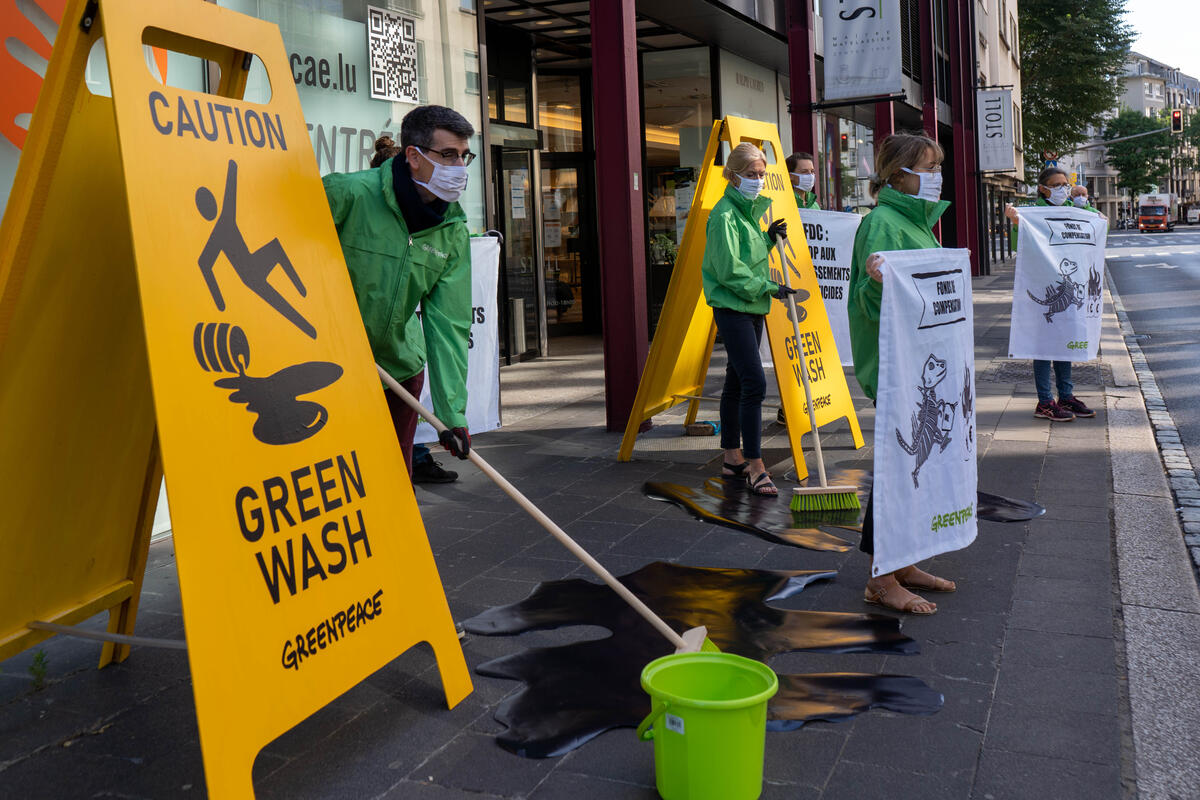
Carbon offsets are a scam - Greenpeace International
Carbon offsetting is truly a scammer's dream scheme. We need real climate not action, not greenwashing.
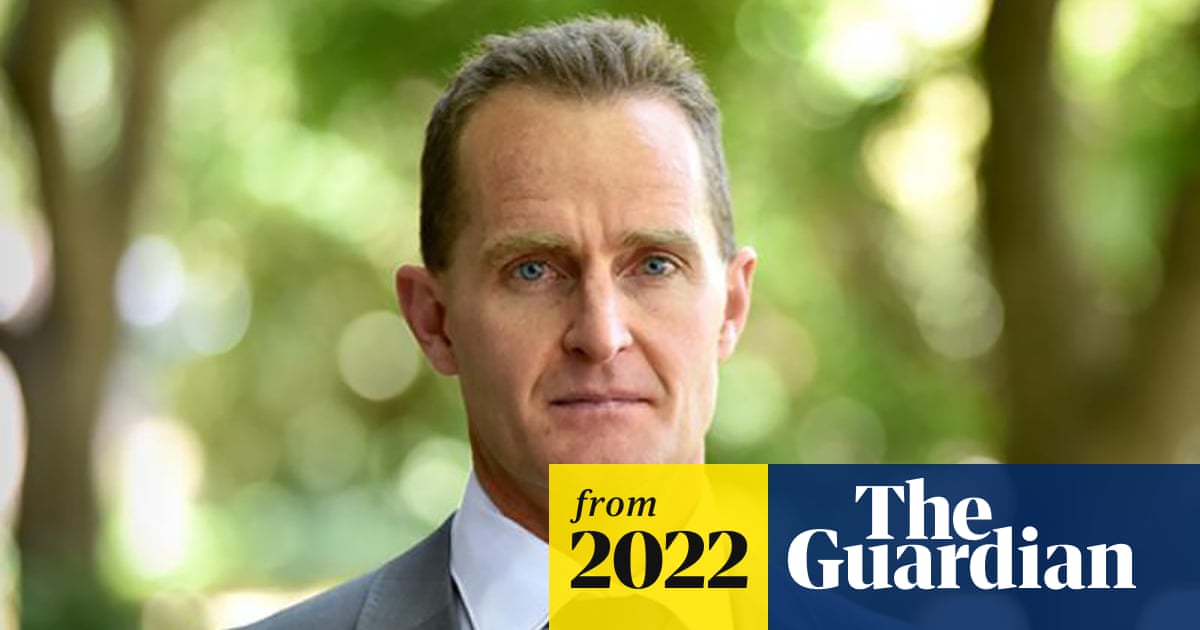
Australia’s carbon credit scheme ‘largely a sham’, says whistleblower who tried to rein it in
Prof Andrew Macintosh says the system, which gives credits for projects such as regrowing native forests after clearing, is ‘a fraud’ on taxpayers and consumers

Revealed: more than 90% of rainforest carbon offsets by biggest certifier are worthless, analysis shows
Investigation into Verra carbon standard finds most are ‘phantom credits’ and may worsen global heating

World must act now to end carbon offset scam
An investigation by European media houses — British newspaper The Guardian, German weekly Die Zeit and SourceMaterial — in January concluded that there are gaping holes in the program of carbon offsets used by Verra, the world’s leading carbon credit certifier. The report indicated that more...
 www.arabnews.com
www.arabnews.com
Ok last link is paywalled, bugger. Another copy paste is due.
“Book more sustainably” — that was the message German airline Lufthansa marketed to travelers when it launched its new “Green Fares” in February. Lufthansa’s new program gives passengers the option to spend a little more money to purportedly reduce the climate impacts of their flights. But climate advocates were quick to criticize the program as another case of greenwashing in aviation.
Almost every major airline has an offsets-based program. Passengers are sold the idea that their share of carbon emitted during a flight can be essentially canceled out by paying to support programs that theoretically reduce an equivalent amount of emissions. Currently, the aviation industry is estimated to be responsible for around 2.5 percent of global carbon dioxide emissions.
American Airlines, for example, has partnered with Cool Effect for its offset program, and offsetting a cross-country flight only costs about $12. Southwest Airline passengers can earn frequent flier reward points for each flight they offset. Low-cost Irish carrier Ryanair advertises that its passengers can “fully offset emissions” for only a few euros.
In 2020, Delta Air Lines pledged to invest $1 billion over 10 years to reduce its carbon footprint, but missed its target in 2021. The airline then spent $137 million to buy carbon offsets to neutralize 27 million metric tons of carbon dioxide emissions. Delta’s Chief Sustainability Officer Pam Fletcher now opposes buying these types of credits, though she acknowledged it was the best tool at the time.
There’s growing scientific consensus that the vast majority of carbon offset programs are unlikely to achieve any level of the emission reductions they promise. And some worry that the industry’s reliance on offsets may, in fact, be making aviation’s climate impacts even worse.
How carbon offsets work
I decided to try offsetting my carbon footprint as I planned a trip back home to the United States. In recent years, I’ve replaced the vast majority of my travel with public transportation and intercity trains, something that’s been easier to do since moving to London. But there’s one trip that I can’t easily substitute with an alternative: a transatlantic flight to D.C. to see my family in Maryland.
I typically fly British Airways. Like most airlines, British Airways offers a convenient online calculator that allows you to type in your departure and destination airports, see the per-passenger carbon emissions and elect to buy some offsets to balance it out. The calculator estimated that a round-trip economy flight from London Heathrow to Dulles International would emit 741.29 kilograms of carbon dioxide. And according to the United States Environmental Protection Agency’s carbon equivalency calculator, that one round-trip flight is the same as driving a car for 1,900 miles.
That stat sounded more than a little depressing. So when British Airways’ calculator said it would only cost about $10 to offset the whole flight, I was skeptical. I spoke with aviation industry insiders, scientists and environmental advocates to see if travelers could really absolve themselves of the impacts of a trip for the price of a beer at an airport bar.
Emissions reductions are ‘dramatically overestimated’
“Customers should be skeptical about any offsetting programs offered to them,” said Jo Dardenne, director of aviation at the nongovernmental organization Transport & Environment, which campaigns for clean transportation regulations. And many appear to be; only 1 to 3 percent of passengers buy carbon offsets, according to estimates from the International Air Transport Association (IATA), which represents the world’s biggest airlines.
Even if passengers aren’t buying them, airlines are — and they’re advertised as central to many airlines’ plans to reduce their carbon footprint. In aviation, this often means the money is funneled to programs that claim to protect forests or fund green energy projects.
“Unlike how they’re presented to travelers, offsets are not really quantified, verified tons of emissions reductions,” said Barbara Haya, research fellow at the University of California at Berkeley’s Center for Environmental Public Policy. Instead, they’re programs that might do some environmental good but ultimately lead to “hard-to-estimate emissions reductions.” Haya said, “In today’s offset market, those reductions are dramatically overestimated.”
Airlines, like anyone purchasing offsets on the carbon market, rely on third parties to ensure the quality of the offsets they purchase. “Airlines are not typically carbon market experts,” said Michael Schneider, assistant director of environment programs at IATA. “They’re not developing those projects. They’re basically buying from a broker.”
Dardenne likens it to paying someone else to go to the gym for you. “How can I be sure that this person is actually going to the gym? How can I be sure that this person wasn’t already going to go to the gym, anyway?”
Offsets help justify increased emissions, experts warn
The most common type of offsets purchased by the aviation industry are forestry and nature-based offsets, which numerous studies have found are mostly worthless. In January, an investigation by the Guardian into the biggest certifier of rainforest carbon offsets found that more than 90 percent didn’t represent any carbon reductions.
The promised emissions reductions hinge on impossible-to-predict claims, said Dardenne. “Nature-based offsetting schemes are dangerous because you’ll never be able to ensure in a climate emergency that a forest won’t get burned down or flooded. You can never be 100 percent sure these offsets are going to work,” she said.
“Offsetting is a climate scam” that ultimately may worsen the climate crisis, argued Dardenne. She said offsets are being used to delay action and delay regulation that can reduce emissions.
Despite offset programs, the sector’s overall carbon dioxide emissions have risen in the past decade at a rate of 4 to 5 percent. As the industry’s recovery continues, that figure is expected to increase as air passenger numbers are projected to exceed pre-pandemic levels by 2024, according to IATA.
“Offsets don’t actually reduce emissions; they just trade where emissions happen,” says Haya, adding that they can “justify ongoing or even increased emissions.” She said she’s losing hope in reforming the market after two decades in the field and is increasingly shifting her focus toward alternatives.
Truly decarbonizing aviation remains a challenge
There are signs that the industry is shifting on carbon offsets. Earlier this year, United launched its Sustainable Flight Fund, a $100 million effort to power airplanes with waste, giving customers the option to contribute a few dollars to the fund when they buy a ticket. Delta also said they are focused on decarbonization now.
In September, low-cost European carrier easyJet announced that it would stop buying offsets “in order to focus our investment into supporting our decarbonisation journey,” Jane Ashton, director of sustainability at easyJet, said in a statement.
IATA’s Fly Net Zero pledge is the industry’s commitment to achieve “net-zero carbon” by 2050, a plan premised on reducing reliance on offsets while scaling production of currently costly sustainable aviation fuels and other emergent technologies. IATA estimates sustainable fuels could reduce emissions from the airline industry by 80 percent.
Even so, IATA’s estimates suggest that offsets will remain the predominant way that the majority of the industry addresses its emissions until at least the 2040s. The International Civil Aviation Organization, a United Nations agency, developed a global climate scheme (CORSIA) that mandates airlines purchase offsets that meet ICAO’s eligibility criteria.
This projected continued reliance on offsets speaks to the many challenges to decarbonize an industry that runs on fossil fuels. Sustainable aviation fuels are expensive, and supply is limited.
“We are a harder-to-abate sector,” said Schneider. “We cannot just say, ‘Let’s switch to battery powered aircraft and that’s it,’” he said, referencing that electric plane concepts only have the potential to decarbonize short flights, not long-haul, which account for the majority of the industry’s emissions.
Some argue that the money being spent on questionable offsets could have a greater impact when invested in other areas such as accelerating the transition to more sustainable fuels and investing in developing decarbonization technologies.
“The absolute most important thing the aviation industry can do is to decarbonize — pay the higher cost of sustainable aviation fuels, build sustainable infrastructure, and support R&D,” Haya said. “Airlines are largely throwing their money away by buying offsets.”
Last edited:
I don't find the explanation "everyone is just stupid" particularly compelling.I don't think it explains Tesla, either. Tesla has two major things going for it: rapid growth, and a very well publicised CEO with a perceived messianic genius (at least until Twitter), tech background. This stimulates investor confidence, turning into classic bubble territory where everyone jumps on the bandwagon - at least up until the point they start jumping off.
Everyone is driven by their evolutionary desire to seek quick reward and advantage over their fellows, over less-rewarding consideration of longer term consequences and more equitable distribution of reward then.I don't find the explanation "everyone is just stupid" particularly compelling.
Then you're ignoring a vast amount of informed commentary from economists and investors, e.g.:I don't find the explanation "everyone is just stupid" particularly compelling.
"Even apart from the instability due to speculation, there is the instability due to the characteristic of human nature that a large proportion of our positive activities depend on spontaneous optimism rather than on a mathematical expectation, whether moral or hedonistic or economic. Most, probably, of our decisions to do something positive, the full consequences of which will be drawn out over many days to come, can only be taken as a result of animal spirits – of a spontaneous urge to action rather than inaction, and not as the outcome of a weighted average of quantitative benefits multiplied by quantitative probabilities."
- John Maynard Keynes
"Every bubble has two components: an underlying trend that prevails in reality and a misconception relaating to that trend"
- George Soros
And you can read up a vast amount more on that from a vast number more people.
A lot of small traders are not well informed, and make poor decisions. There's overconfidence, overoptimism. Fashions/trends with psychogical effects like fear of missing out, or being pressured to buy in by peers, managers or the people whose money an investment manager is managing. There's also simple gambling-like behaviour: a stock might be known to be wildly overpriced, but if it's still going up then there's a rationale to invest in it in the hope they can cash out before it tumbles and leave others with the losses.

